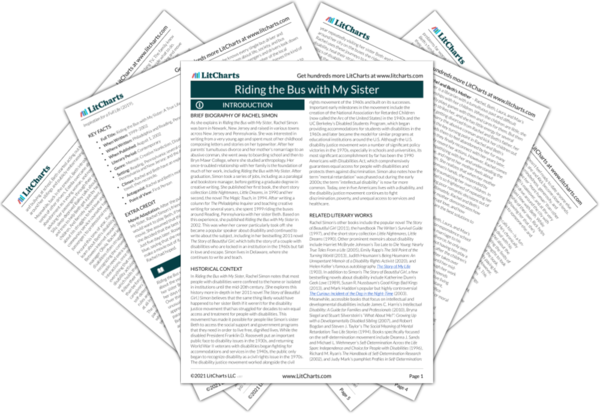Rachel’s visit to Rick puts both a literal and a symbolic end to her year of visiting Beth—thus, in this closing scene, Rachel and Beth follow their own separate paths forward in life. But Rachel doesn’t just go back to her old, lonely life as a writer—instead, she takes the lessons she has learned from her time with Beth with her. Indeed, the very fact that she chooses to see Rick shows that she has changed. Similarly, her remark about the endless network of miniature worlds in the city shows how her time with Beth has taught her to see the beauty, value, and dignity hidden in people’s everyday lives—even in places as mundane and unexpected as public buses.
